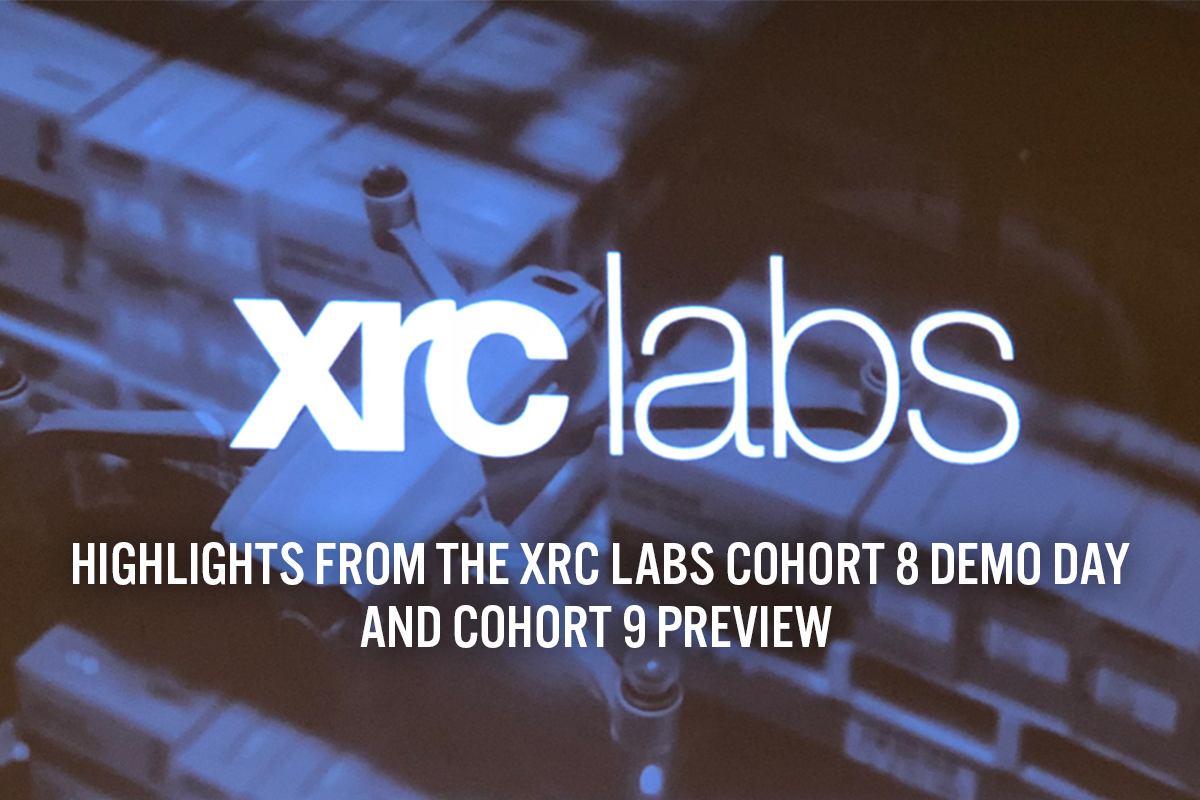
Nitheesh NH
XRC Labs is an accelerator program dedicated to fostering the next generation of disrupters, focusing on the retail and consumer goods industries. The program partners with select corporate partners that span the retail and consumer goods landscape and brings together entrepreneurs, investors and sponsors to drive innovation and unlock new opportunities in retail.
We present highlights from the XRC Labs Cohort 8 Demo Day event in New York City, which took place on January 15 at the John L. Tishman Auditorium. We also outline the startups that presented their innovative solutions at the event as well as a preview of the companies in XRC Labs’ Cohort 9.
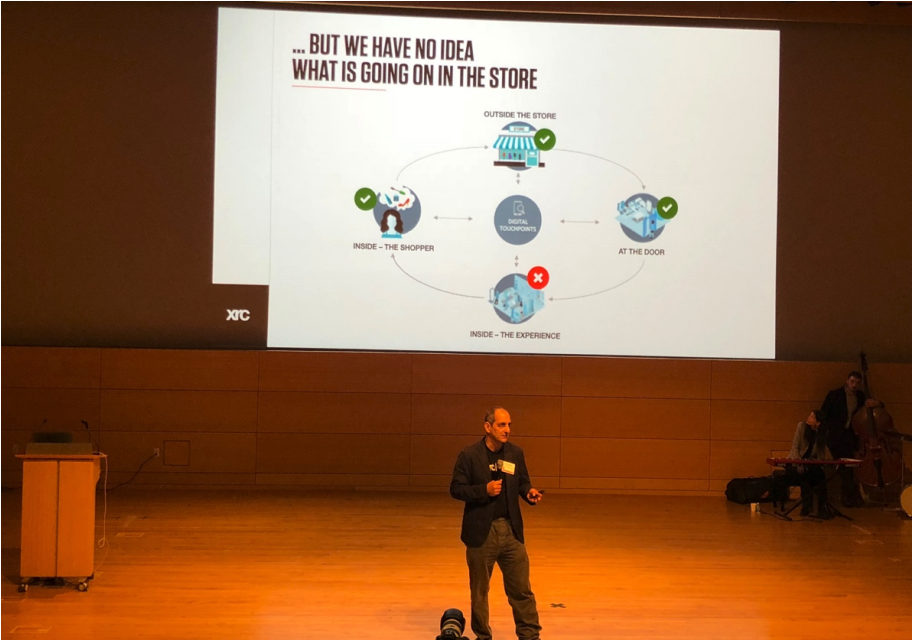 Pano Anthos, Founder and Managing Director of XRC Labs, discusses the challenges for retailers operating physical stores.
Pano Anthos, Founder and Managing Director of XRC Labs, discusses the challenges for retailers operating physical stores.
Source: Coresight Research[/caption]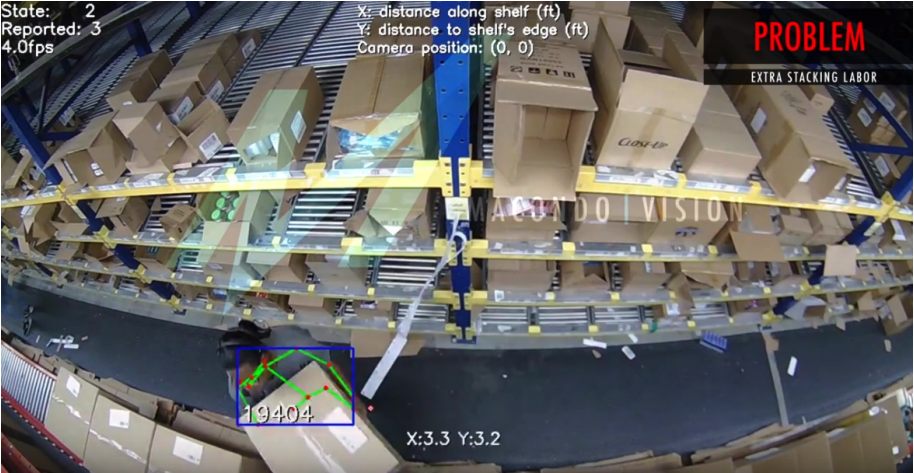 A demo of Macondo Vision’s camera-based activity tracking tool
A demo of Macondo Vision’s camera-based activity tracking tool
Source: Macondo Vision[/caption]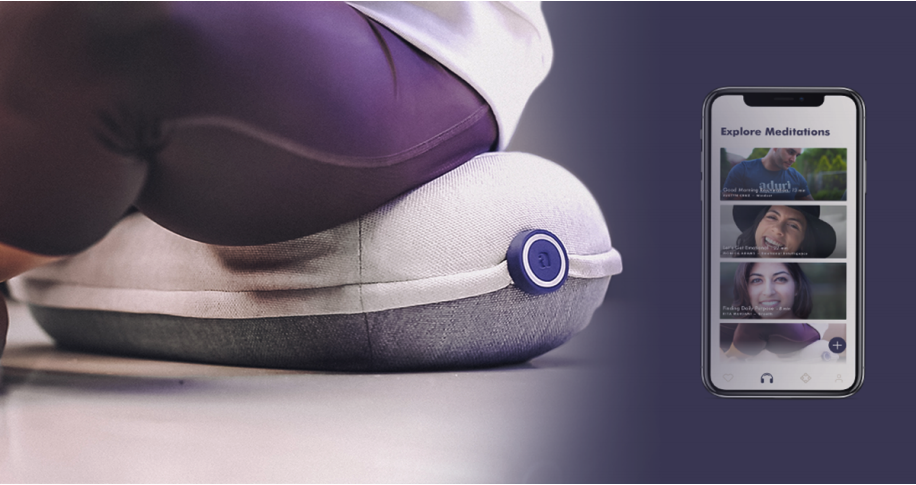 Aduri’s smart multi-sensory meditation cushion and its app
Aduri’s smart multi-sensory meditation cushion and its app
Source: Aduri [/caption]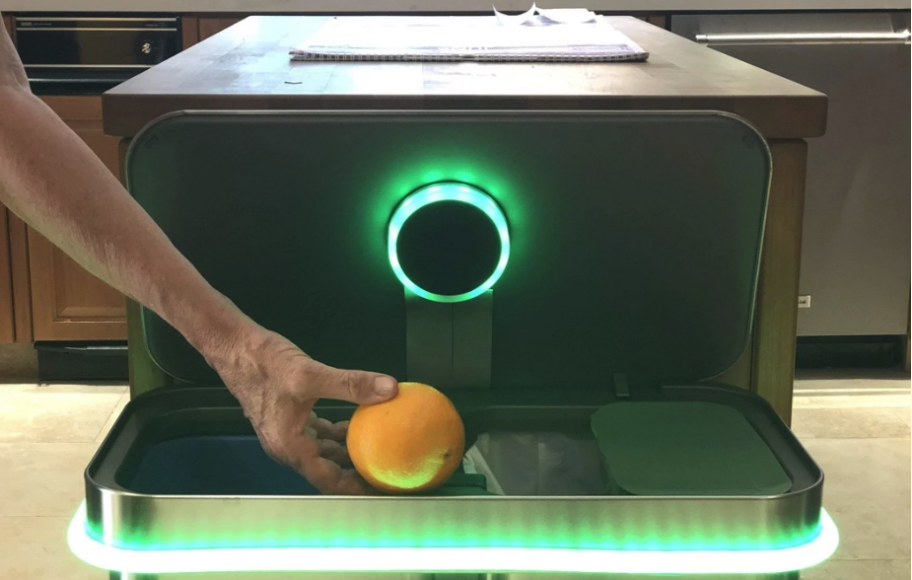 Garbi’s trash can identifies and sorts waste
Garbi’s trash can identifies and sorts waste
Source: Garbi[/caption]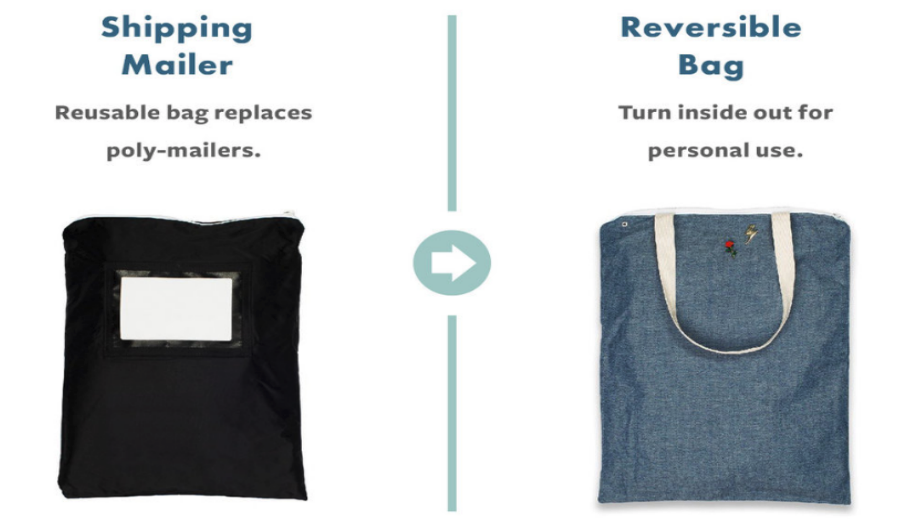 Returnity’s reusable shipping bag
Returnity’s reusable shipping bag
Source: Returnity[/caption]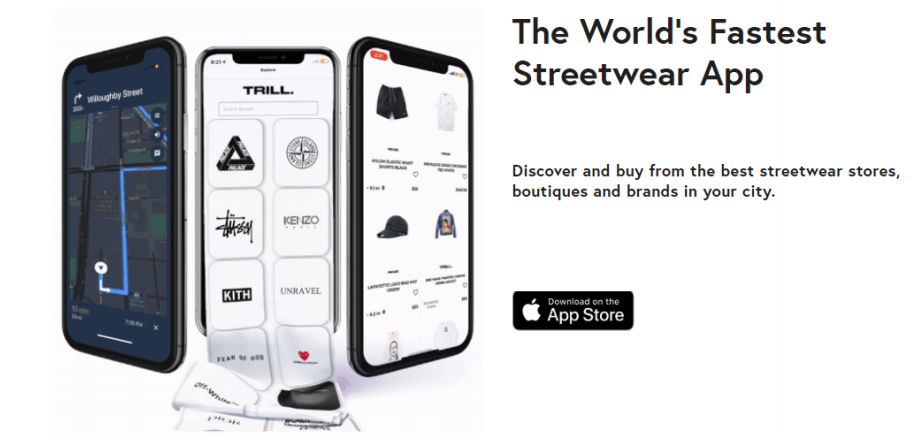 Trill’s app directs consumers to the streetwear stores that they are interested in.
Trill’s app directs consumers to the streetwear stores that they are interested in.
Source: Trill[/caption]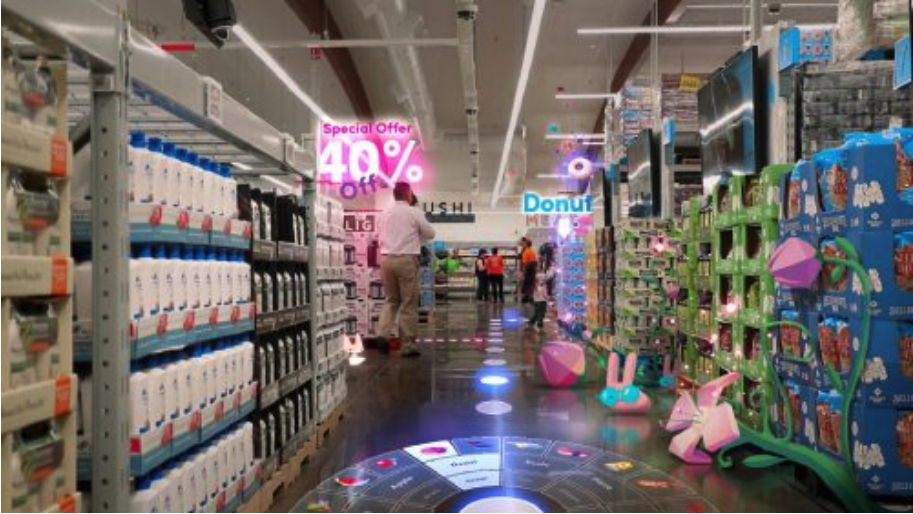 weR can enhance the user’s shopping experience through profound visual understanding
weR can enhance the user’s shopping experience through profound visual understanding
Source: weR[/caption]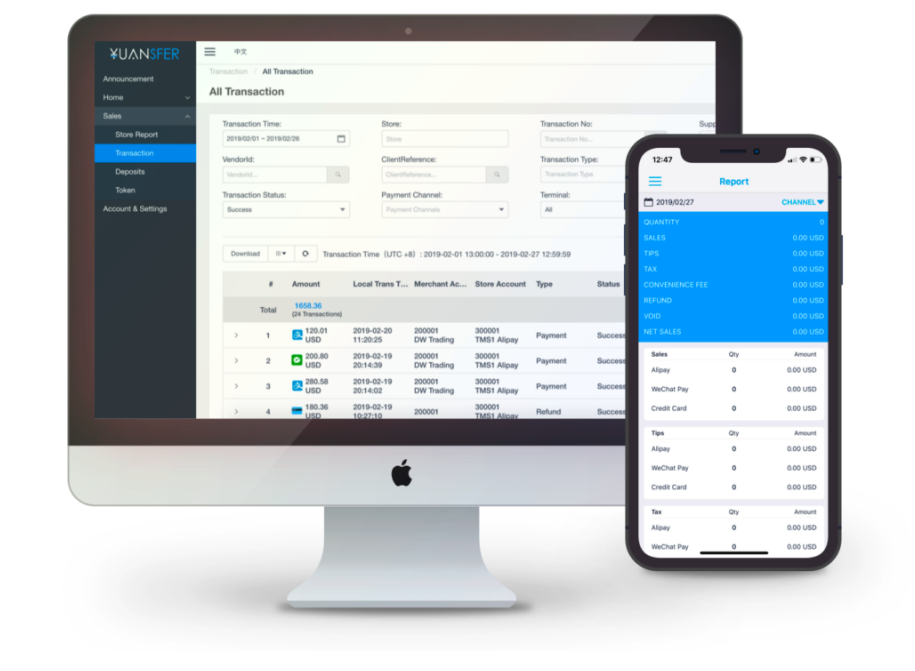 Yuansfer’s app and business portal
Yuansfer’s app and business portal
Source: Yuansfer[/caption]
Retail Is in a Dramatic State of Change and Is Seeing Ongoing Product Innovation
Pano Anthos, Founder and Managing Director of XRC Labs, kicked off the event with an overview of the changing retail environment. He said that net retail store openings have declined since 2012, and retails and brands should prepare for the challenges in operating physical stores. Anthos emphasized three key actions that brands and retailers must take to stay ahead:- Launch into white-space categories: E-commerce platform Net-A-Porter is renewing its commitment to ethical and sustainable fashion by expanding its Net Sustain platform—the edit will include additional green fashion brands as well as clean eco-friendly beauty products for the first time.
- Deepen the capabilities of digitally native brands: Warby Parker, a direct-to-consumer eyeglass brand, disrupted the selling process by launching a new augmented reality-enabled system that leverages face-mapping tech to allow users to virtually try on glasses. Customers also have the option of choosing up to five frames from the company’s website to be shipped to their home for a free trial.
- Make key acquisitions: Skincare company Tatcha has been acquired by Unilever in a deal reportedly worth nearly $500 million, according to Women's Wear Daily.
 Pano Anthos, Founder and Managing Director of XRC Labs, discusses the challenges for retailers operating physical stores.
Pano Anthos, Founder and Managing Director of XRC Labs, discusses the challenges for retailers operating physical stores.Source: Coresight Research[/caption]
The Spectrum of Health Services in Retail Has Expanded
Consumers are increasingly demanding more approachable healthcare services. New tools and technologies are empowering consumers to take control of their wellness while lowering the costs of healthcare. Now, people can manage their own nutrition, sleep, fitness and mental health in any place at any time, without a doctor on site. Healthcare at home is continuing to grow at an astonishing pace, with innovative solutions for diagnosing, monitoring and treating illnesses being launched, as well as advances in healthcare delivery being made.- Muse has developed a wearable headband that measures brain activity via four electroencephalography sensors, enabling users to monitor their sleep patterns.
- Upmood is another wearable device that collects biodata to give consumers insights into their heart rate, stress levels, vitality levels and emotions, promoting positivity through emotional self-awareness.
- Myant, a pioneer in textile computing, is launching a line of smart textiles that provide heart health monitoring and management.
Outlining XRC Labs’ Cohort 8
Cohort 8 (July 2019 to January 2020) comprises eight companies that offer solutions from e-commerce to personal care. Five startups presented their solutions at the event:- Ageless is a multimedia information platform for woman aged over 45 years to share insights in topics ranging from beauty, wellness, and fitness to finance, careers and more. The platform provides users with access to advice from sector experts and the wider community of consumers.
- Formula is focused on providing personalized nootropics solutions. The company leverages data science to tailor its offerings of brain supplements to each individual’s unique biology and daily activities—recommendations are given based on a three-minute assessment completed by the consumer.
- Macondo Vision’s camera-based activity tracking tool is designed to help retailers improve workforce productivity—it is built for warehouse operators that want to increase performance without adding engineering capacity. The solution is backed by artificial intelligence and computer vision technology to provide data-based insights into operational processes and efficiency.
Source: Macondo Vision[/caption]
- Spaw is a company that provides in-home dog grooming services.
- Stryx is a corrective cosmetics brand for men. Products include concealer and tinted moisturizers. According to the company, it is experiencing a returns rate of 1%, compared to a 10% average returns rate in the US.
A Preview of Companies in XRC Labs’ Cohort 9
The ninth cohort of companies in XRC Labs’ accelerator program comes into effect in February 2020. Below, we present a preview of eight companies featured in this cohort that are leveraging smart technology to provide innovative solutions.- Aduri has developed a digitally connected meditation cushion that helps users to rest, recover and re-focus. The product leverages smart technology and has an associated app.
 Aduri’s smart multi-sensory meditation cushion and its app
Aduri’s smart multi-sensory meditation cushion and its appSource: Aduri [/caption]
- Evenprime offers personal care and grooming essentials for young people, with dermatologist-approved formulas. Evenprime’s complete skincare kit includes a face mist that re-balances stressed skin, daily moisturizer that reduces redness and a cleaning gel that can dissolves oil and grime.
- Garbi’s eponymous product is a smart trash can that uses computer vision to identify and sort waste—for example, making the distinction between trash, recycling and compost. Furthermore, consumer data from the Garbi can be used to create personalized grocery lists for orders through a third-party service.
 Garbi’s trash can identifies and sorts waste
Garbi’s trash can identifies and sorts wasteSource: Garbi[/caption]
- Nuudii System is disrupting the underwear sector by creating a new category between bra and braless, encouraging women to embrace their natural shape and offering comfort and versatility. The one-piece product can be worn in more than 12 ways.
- Returnity offers sustainable packaging for digital retailers, which can be re-used by consumers.
 Returnity’s reusable shipping bag
Returnity’s reusable shipping bagSource: Returnity[/caption]
- Trill is a streetwear aggregator app that provides geolocation-based information on sneakers, streetwear and exclusive clothing from New York City’s boutiques and brands.
 Trill’s app directs consumers to the streetwear stores that they are interested in.
Trill’s app directs consumers to the streetwear stores that they are interested in.Source: Trill[/caption]
- weR is a personalized augmented-reality shopping platform that connects the physical store with digital channels, enabling an immersive environment for consumers. It offers a direct marketing channel between brands and consumers in stores.
 weR can enhance the user’s shopping experience through profound visual understanding
weR can enhance the user’s shopping experience through profound visual understandingSource: weR[/caption]
- Yuansfer is a cross-border payments solution that helps brands to develop insights about their business. Existing clients cover a range of sectors and include Under Armour, jewelry retailer Carat & Co and Oheka Castle Hotel and Estate in Long Island, New York.
 Yuansfer’s app and business portal
Yuansfer’s app and business portalSource: Yuansfer[/caption]